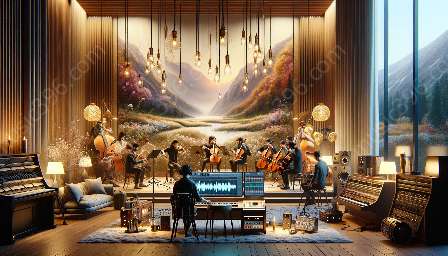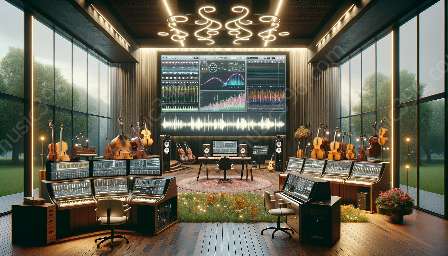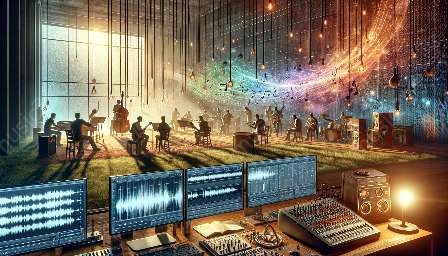Experimental music often pushes the boundaries of traditional chord progressions, exploring unique and innovative ways to use harmony and structure. In this topic cluster, we will delve into the non-traditional uses of chord progressions in experimental music and analyze them within the realms of music analysis and chord progression analysis.
The Influence of Non-Traditional Chord Progressions
Experimental music thrives on challenging established norms, and non-traditional chord progressions play a crucial role in this process. Non-traditional chord progressions are used to create dissonance, ambiguity, and unconventional tonal relationships, adding depth and complexity to the musical composition.
Non-Traditional Chord Progressions in Experimental Music
One of the distinctive features of experimental music is the exploration of alternative harmonic structures and progressions. This can involve the use of non-diatonic chords, unconventional resolutions, and unexpected modulations. By breaking away from traditional tonal systems, experimental musicians can evoke unique emotions and create distinct sonic landscapes.
Chord Progression Analysis in Experimental Music
When analyzing non-traditional chord progressions in experimental music, traditional harmonic analysis techniques may need to be adapted to accommodate the unconventional nature of the compositions. Music analysts often employ innovative approaches to understanding the complex relationships between chords and the dissonant or unresolved qualities that non-traditional progressions may exhibit.
Exploring Dissonance and Ambiguity
In experimental music, non-traditional chord progressions are frequently employed to emphasize dissonance and ambiguity. These progressions challenge listeners' expectations and introduce tension, often leading to unexpected and thought-provoking musical experiences. Music analysts delve into the intricate webs of dissonance and ambiguity to uncover the underlying structures and emotional impact of non-traditional chord progressions.
Chord Progression Experimentation
Experimental musicians often engage in deliberate and structured chord progression experimentation, where traditional rules are intentionally broken to create new and unconventional harmonic patterns. This form of exploration calls for a refined understanding of music theory and analysis, as well as an open-minded approach to the potential outcomes of these innovative experiments.
Conclusion
Non-traditional uses of chord progressions in experimental music provide a captivating avenue for creating challenging and thought-provoking musical experiences. By analyzing these non-traditional progressions within the context of music analysis and chord progression analysis, we gain insight into the innovative techniques and expressive possibilities that drive experimental music forward.

































